The Value of Estate and Trust Planning
Protect your family and your legacy.
Estate planning is a fundamental part of a sound wealth management strategy. It can help to preserve your wealth, provide security for your loved ones, and smooth the transfer of assets to your beneficiaries after you are gone. From creating a valid will to setting up trusts and establishing your legacy, knowing that your affairs are in order will allow you and your family to enjoy life to its fullest.
START THE CONVERSATION:
Making plans for how your wealth will be managed after you’re gone may not be the most comfortable topic, but its benefits stretch far beyond legal and financial ones. A comprehensive estate plan helps to offset some of the unpredictability that surrounds life and death, providing an extra layer of comfort and security for both you and your family.
Careful estate planning can:
- Protect your loved ones from financial insecurity by ensuring that your wealth is managed appropriately and will reach them with minimal delay.
- Guide your trusted contacts to make financial, business and personal decisions for you with confidence if you are unable to.
- Communicate exactly who will inherit your assets and possessions to limit potential conflicts among your heirs.
- Preserve your family’s wealth by minimizing taxes, fees and expenses.
- Establish your legacy and support the causes that mean the most to you.
IT STARTS WITH A WILL:
A valid and up to date will is the key cornerstone of any estate plan. Without one, the courts will decide how to distribute your wealth, a process that may result in long delays and uncertainty for your loved ones. It may also add taxes, probate fees or legal costs that can erode the value of your estate.
Your will should consider all your assets and include a plan for distributing them after your death. It should name and include instructions for your estate trustee or executor and may include additional directives such as guardians for minor children, specific bequests of real property, and any final instructions for your funeral arrangements.
MORE KEY ELEMENTS:
While a will is an essential starting point, a thorough estate plan should encompass all aspects of your wealth, your family, your goals and the causes you support. It’s likely to include some of these elements:
- Powers of Attorney, or legal arrangements to appoint trusted contacts who can make business, financial, and/or health care decisions for you if you pass away or become incapacitated. Your Powers of Attorney should be aware of your wishes and have a strategy for managing and distributing your wealth both during your lifetime and after your passing.
- Trusts, which are flexible arrangements that can help to transfer your wealth to your beneficiaries in the most suitable way, such as when leaving large sums to minor children, to support spouses in the case of blended families, or when dependents need specialized care. A trustee must be appointed to manage the assets of trusts created in the terms of your will.
- Plans to minimize final taxes and other costs so that your wealth reaches your beneficiaries quickly and efficiently. This may mean assigning beneficiaries to your registered and tax-free savings accounts to ensure tax-free asset rollovers, providing early inheritances, or transferring capital property to your spouse or a qualified spousal trust.
- Insurance to enhance and protect your estate. Life insurance provides a tax-free benefit to offset taxes owed by your estate or equalize inheritances if your assets are illiquid. Critical illness insurance benefits can ensure your assets are not diminished by the cost of ongoing care if required.
- Charitable strategies such as “planned giving” or donor-advised funds can establish your legacy by supporting the causes that mean the most to you, while also yielding tax savings for your estate.
GETTING STARTED:
Estate planning is a dynamic process that should be revisited every three to five years or so to reflect significant milestones such as marriage, divorce, expanding your family, or planning for retirement. Given the unpredictability of life, it’s never too early—or too late— to get started. Your advisor can help simplify the process by engaging our team of specialists who can guide you toward the solutions best suited to you and your family.
Securities-related products and services are offered through Raymond James Ltd. (RJL), regulated by the Canadian Investment Regulatory Organization (CIRO) and a Member of the Canadian Investor Protection Fund. RJL financial/investment advisors are not tax advisors, and we recommend that clients seek independent advice from a professional advisor on tax-related matters. Insurance products and services are offered through Raymond James Financial Planning Ltd., which is not regulated by CIRO and is not a Member of the Canadian Investor Protection Fund. Solus Trust Company (“STC”) is an affiliate of Raymond James Ltd. and offers trust services across Canada. STC is not regulated by CIRO and is not a Member of the Canadian Investor Protection Fund.





